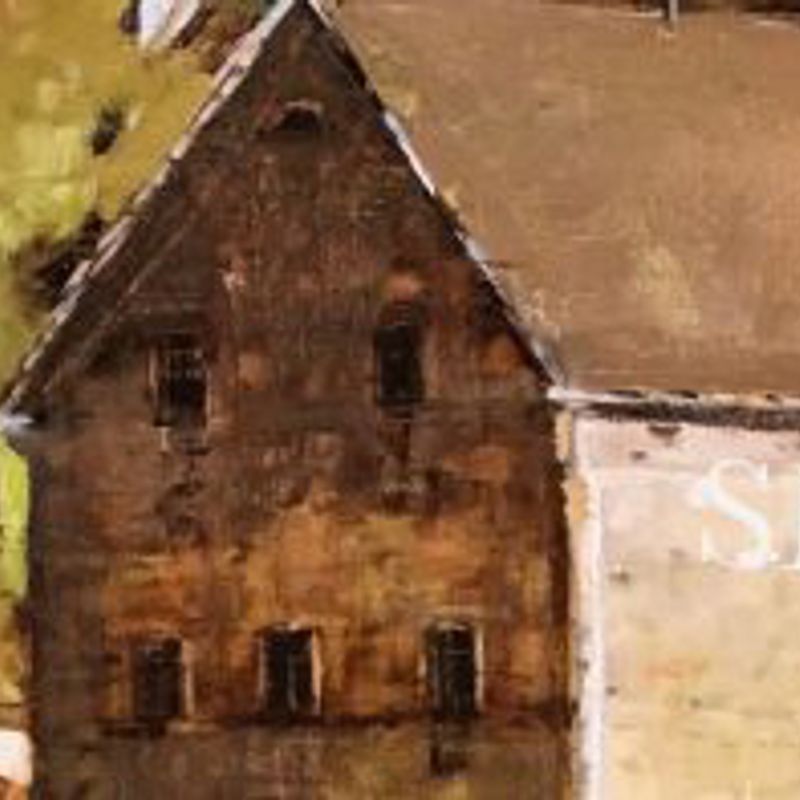A Postcard for Regina
by Laura LongOriole Street curled back from Light Avenue, rose and twisted, fell, twisted again, and ended at the edge of weeds, an old grape arbor, and a ramble of wild roses. Regina lived at the end of the Oriole Street in what had been a caretaker’s house, and the overgrown field had been the grounds of a mansion. The mansion had burned down. A few blackened bricks from the chimney remained, and in the field was a stone bench, curved in such a way that two people sitting there touched knees.
Regina had no cats and did not brew pots of herbal tea. She did not have a loom or a godmother, and she was as ordinary looking as a blade of grass. She had a lover, with whom she ate eggs in the morning and whose whistle, gait, and way of stirring soup were as familiar as a childhood rhyme. One day her lover decided to go on a journey. He had read many fairy tales when he was a boy, and he felt that to be a man he must have an adventure.
He sent her a picture of fish that stared out of solemn, barred faces. Another card showed tiers of bleached villas perched on a cliff between two blue lines, the sky and the sea. Regina searched this picture for a sign of wind, but found no trees or people or laundry hung to dry. On the table in her kitchen, under a window gripped by ivy, the postcards leaned hot and vivid against a vase. They did not fade.
She imagined herself the curtain, feeling the wind blowing her in and out. The electric clock burbled when the long hand passed over the short one; butter clogged a slice of bread; the window cracked in the corner; the edges of the wild roses in the vase wrinkled into brown, and Regina felt herself to be, in fleeting moments which had the slow texture of a dream, anything she saw.
She didn’t know what to think about this.
She was the picture of a fox on the wall, watching a woman sweep the kitchen floor.
Then she was inside a villa in the postcard. She heard the sea rise and fall. Sand filtered through the screened window. The walls were whitewashed and rough.
Her lover walked in the door with a burlap sack over his shoulder. The threads were the same brown crinkle of his hair. He pushed the sack under the single bed with the white sheet and white pillow. He lay down and wouldn’t tell her what was in the sack. There was a nail on the wall over the bed that nothing hung on. When the moon rose in the purple sky and was framed in the window, Regina tried to feel herself the moon but couldn’t. Her lover’s breath slowed and steadied.
Regina pulled the sack out, carried it to the doorstep, sat down and untied the string at the top. Inside, the sack was half-filled with small, dried leaves. They smelled sharp and unfamiliar. They crumpled when she touched them and left gray-green dust on her fingers.
Her lover was standing behind her, his knees pressed into her back.
“Why did you open it?” he asked.
“Because I’ve missed you,” she replied.
“I don’t want you here,” he said, and she was back in her house again, looking at the vase of wild roses. Although there wasn’t a breeze, two petals fell off. Regina picked them up and rolled them between her fingers. They felt like newly washed skin. Just when the roses were beginning to die, they had the sweetest smell, delicate and dense, the trace of longing that remains after hope disappears.
